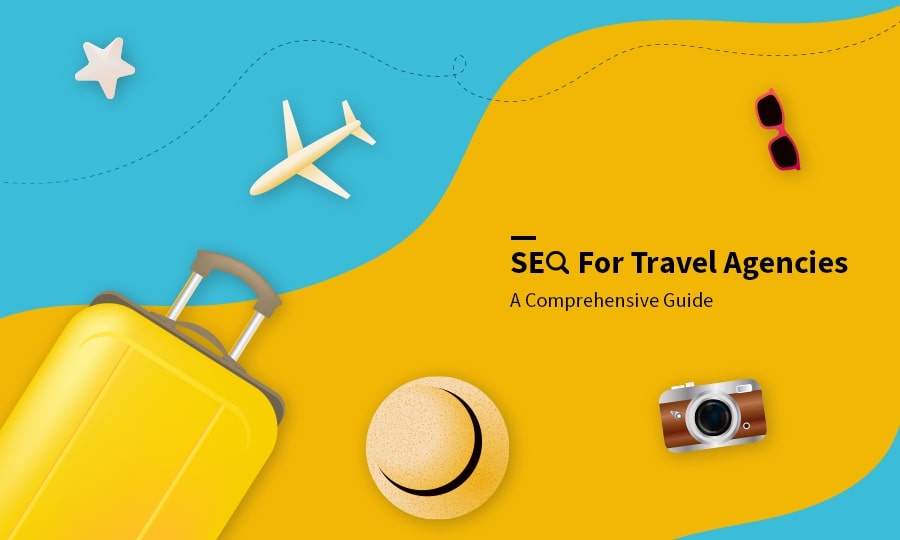
The Transformation of Travel: A Focus on B2C Portals
One area in which the travel industry has significantly altered directions in recent years is through the influence of technology and growing interest toward more customized, available experiences. As part of this shift, B2C portals have emerged and become major portals through which travelers book flights, hotels, car rentals, and so on. They have also empowered consumers to make greater decisions over the way they organize and manage their trips.
In this blog post, we are going to explore the transformation of travel with a specific focus on B2C portals that expose how these platforms have evolved, with the benefits they offer to both the businesses and their consumers, and what lies ahead for travel.
What is a B2C portal in travel?
This would require understanding what exactly a B2C portal is. The term B2C stands for business-to-consumer; that is, businesses offer their products or services directly to individual consumers. For the travel industry, B2C portals refer to online platforms through which a customer may book airline tickets, hotel reservations, tours, car rentals, among others.
One-stop-shop portals facilitating online search, comparison, and booking of travel plans. Some of the most prominent examples of B2C travel portals include Expedia, Booking.com, Airbnb, and Skyscanner. These platforms have become central to the modern travel experience, focusing on convenience, flexibility, and competitive pricing.
How B2C Travel Portals Emerged
Traveling has been revolutionized by the digital age and is characterized largely by B2C portals. In the pre-recessionary epoch, when travel agencies and B2C portals had still not entered the scenario, it was the traditional travel agents who primarily helped the tourists plan their tours. The process was back-and-forth communication, plenty of paperwork, and very few tailor-made options.
However, the advent of the internet and digital technology changed this landscape dramatically. The launch of platforms like Expedia in the late 1990s and later, the platforms of Booking.com and Airbnb opened new possibilities for consumers to make direct bookings for travel services. In B2C portals, there was an added ability to compare prices, read reviews, and make bookings all at one site, which was much more difficult to accomplish.
B2C portals have made travel planning easier, more convenient, and more accessible to a broad population by providing customers with a plethora of information and choices. As smartphones evolved, so did the travel portals, thereby enhancing their user experience and expanding their reach.
How B2C Portals Benefit Consumers
Traveling has been changed basically through B2C portals from the way of consumers. Consider some of these inherent benefits they have for customers.
1. Convenience and Accessibility
One of the greatest benefits that B2C portals offer is the convenience they bring to consumers. Consumers do not have to surf several websites or haggle with travel agents anymore to plan a single trip. All their needs can be found in one place. Whether it be making reservations on flights, seeing who has the best hotel deals, or renting a car, B2C portals would allow travelers to do everything they want in just a few clicks.
Moreover, the fact that these portals are accessible using mobile devices means that travel planning can be done anytime, anyplace. Whether sitting at home, commuting, or on the go, decisions and plans can be finalized when it suits the traveler to do so.
2. Price Comparison
Another major advantage of B2C portals is that it is possible to compare the prices of various airlines, hotels, or any other service providers. With a few searches, consumers can get an instant comparison of various options and find the best deals. Translucency empowered consumers to make more informed decisions based on price, location, amenities, and other preferences.
For instance, if a tourist is searching for a hotel, they can make use of a B2C portal to compare different hotels in a given area and look at a result that can be filtered based on their budget, star rating, and user reviews. This transparency was unavailable in the past and has altered the consumers' way of approaching travel services' purchase activity.
3. Personalization
In recent years, B2C portals have become very customized. Using data and advanced algorithms, these platforms can recommend options based on a user's past travel history, preferences, and behaviors. For example, if a traveler often books budget hotels, then the portal might suggest similar options for their next trip.
Another personalization technique is through promotion and loyalty programs. Many portals reward high utilizers with discounts and points that can be used for future bookings. This benefits the consumer but also helps businesses retain their customer loyalty.
4. User Reviews and Ratings
Another notable feature of B2C travel portals is the ability to read user reviews and ratings. Reviews give a traveler a candid, unfiltered experience of what to expect in a hotel, airline, or activity. This has helped in establishing trust and confidence in online booking among consumers.
Today, reviews exist on nearly every B2C portal, and most of them feature photos or videos uploaded by actual travelers. This enhances transparency, making it possible for consumers to be better prepared and avoiding unpleasant surprises.
5. Customer Support
B2C portals often provide customer support services, ensuring that travelers have access to help whenever needed. Whether it’s a last-minute change to a flight or a question about a hotel booking, customer support teams can assist with resolving issues quickly. Many portals also offer live chat or 24/7 support, making it easy for consumers to get the assistance they need in real time.
Benefits to Business from B2C Portals:
Though indeed the prime target of the B2C portal is customers, it does provide much more to the businesses related to their business products and services listed on the portal. Here's how:
1. Enhanced Visibility and Reach
A travel company can target a wider market by putting its products up on any available popular B2C portal. OTAs and travel portals have millions of visitors every month, most of whom are searching for deals and options they would not have otherwise found.
This is especially valuable for smaller businesses or local providers that might not have the marketing budget to compete with larger brands. For example, a boutique hotel can reach customers worldwide through B2C e-marketplaces such as Booking.com, which already have an established, global user base.
2. Cost-Effective Marketing
B2C portals are cheaper for travel businesses to reach travel customers because they do not require spending on advertorials or a fully fledged website. Instead, the business can list their products here and probably get some traffic already, and for that, they will have to pay a commission to the portal when a booking is made.
This model eliminates the need for extensive marketing efforts while allowing access to a global market. Furthermore, most portals provide marketing tools, such as featuring listings, which businesses can pay for to enhance their publicity.
3. Simplified Booking and Payment Processing
B2C portals take care of reservation and payment processing for businesses, thereby streamlining operations and reducing administrative hassles. Such portals allow a business to focus on the delivery of excellent customer experiences, as reservation, cancellation, and financial transactions are all taken care of by the portal.
Further, B2C portals often offer analytics and insights about customer behavior. They can help businesses adjust their offerings and improve their services according to that feedback.
Outlook B2C travel portals: Future
The future of B2C travel portals seems promising, full of exciting trends to soon look forward to. Some of them are:
1. Artificial Intelligence and Machine Learning
AI and ML will play even more central roles on B2C travel portals since they can take personalization to a whole new level with the suggestion of specific options for individual travelers. AI can be taken into predictive analytics for demand prediction and optimization of price strategy.
2. Voice Search and Virtual Assistants
More availability of voice-activated devices such as Alexa, Google Assistant, and Siri is likely to make voice search redefine how the consumer interface travels through portals.
Flights or accommodations can no longer be looked up by users as they would type, but instead, they would tell their virtual assistant to find a flight, hotel, or car for them.
Conclusion
Travel portals for B2C are changing the face of the travel industry because they provide consumers with ultimate convenience and customized experiences, featuring an enormous options palette. Greater exposure, inexpensive marketing, and streamlined operations comprise some of the inherent benefits reaped by these portals for any business. And in this venture, B2C portals for travel currently are and will be—the future even brighter with the arrival of AI and voice search, which are revolutionizing travel planning and booking. When it comes to travel or business, one can already see that B2C portals are really going to become the bedrock for the travel industry soon.
Read Also
Future of Travel B2B: The Trends in Web Development.

 Start your Travel Business with Our 7 Day Free Trial Website!
Start your Travel Business with Our 7 Day Free Trial Website!





